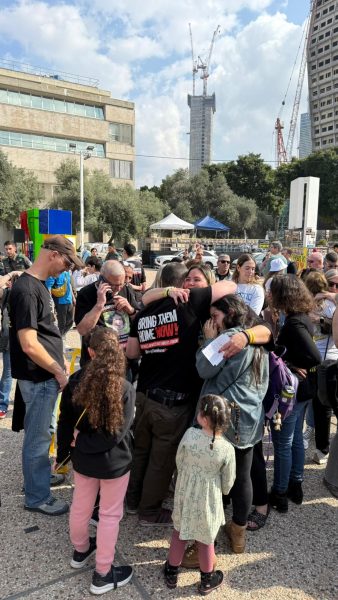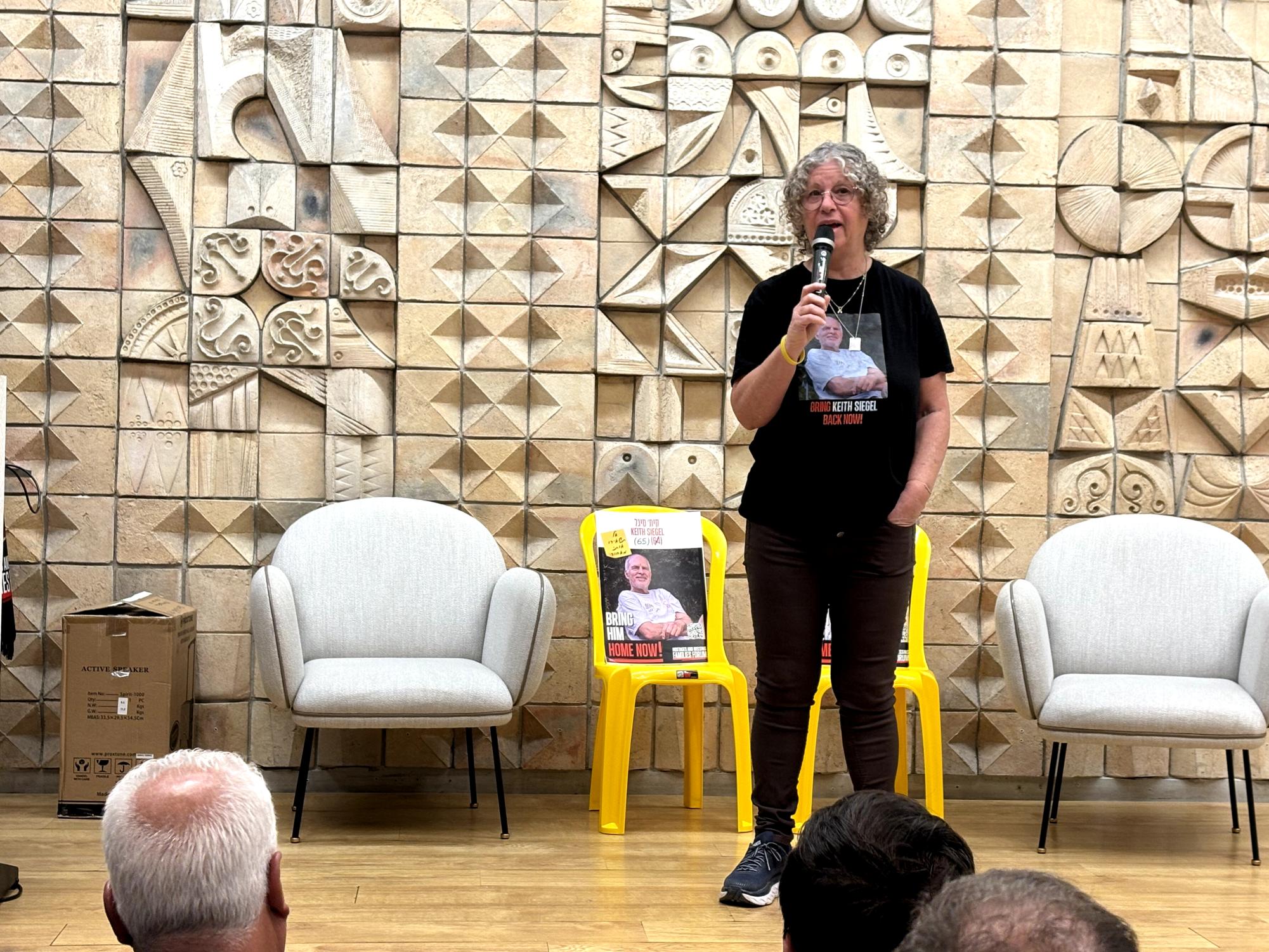“Abba!” cried the three daughters of Ohad Ben Ami as they ran towards their father who for 491 days they feared would never return home. In a flurry of excitement and desperation, they embraced as he planted fatherly kisses atop each of their heads, their family finally whole after 15 months of being broken.
Ohad’s reunion is just one of the many videos surfacing on the internet after the first phase of the ceasefire deal between Israel and Hamas. The deal has brought home at least 24 hostages brutally abducted by Hamas during their October 7, 2023, attack on Israel, in exchange for at least 730 convicted Palestinian prisoners and detainees.
For me, the videos of families reuniting, such as Ohad and his family, were key to unlocking the invaluable lessons we can learn from survivors. Hearing firsthand accounts from survivors gives context to heavily nuanced conflicts and teaches us to be compassionate, resilient, and appreciative throughout hardship. Although this background can be incredibly gut-wrenching, it is important to provide an empathetic lens that deepens our understanding and compassion for victims.
Watching the emaciated hostages reunite with their anguished family members sends chills down my spine. Seeing these videos confirmed my worst suspicions from the beginning of this excruciating attack. I see the cruelty imposed on them by the Hamas perpetrators, and I cannot imagine the trauma that will continue to plague them and their loved ones for the rest of their lives.
As a Jewish person who feels a great sense of loyalty to Israel, these past 16 months have been grueling and devastating. I am overwhelmed with emotions over the recent ceasefire. While overjoyed that these few hostages have made it home safely, I remain deeply saddened by the tragic fates of the families of those already murdered and those who are yet to be free.
Although the plight of the Israeli hostages is incredibly tragic, I write this essay to offer a glimmer of hope.
Of the many stories of grit and resilience from the hostages, witnessing the strength of the 80-year-old hostage, Gadi Moses, has been especially impactful. After Hamas stripped Gadi away from his home in Kibbutz Nir Oz, he never lost his sense of self despite his 470 days of captivity. While mourning the murder of his wife, Efrat Katz, who was slaughtered by Hamas terrorists on the day he was abducted, Gadi found himself completely alone. Gadi told family members that he spent his days counting floor tiles, keeping himself mentally sharp by solving math problems, and walking over four miles every day to keep himself busy.
In such deplorable conditions, it is easy to give up. Yet Gadi never did. Every five days, when he was allowed to bathe, Gadi insisted on shaving despite the uncomfortable conditions, to preserve the little humanity he had left. When I heard this story, it provided a much-needed perspective shift for me. The seemingly mundane task of shaving became Gadi’s lifeline and underscored the importance of valuing the gift of free will and choice.
Survivors' stories not only force us to cherish our fortunate circumstances but also reveal the value of optimism for survival.

Keith Siegel’s story is another prime example of how remaining hopeful while in captivity provided him with the needed motivation to survive. Keith, along with his wife, Aviva Siegel, were taken hostage from their home in Kibbutz Kfar Aza on October 7. While Aviva was released in December of 2023, Keith remained in captivity for 484 more days. For him to stay sane during his days of torture, his sister Lucy Siegel told the Times of Israel, “Every day he would [imagine] talk[ing] to each of us. He would talk to Mom and then Aviva and then each of his four kids and his grandchildren.”
Keith and Gadi’s unique ways of warding off the despair of captivity highlight the extreme power of our minds. The strength of human will extends far beyond Keith’s and Gadi’s stories. Hostage Ofer Kalderon was taken along with his two children from his home in Kibbutz Nir Oz. When Ofer returned, his family wrote in a statement by the Hostages and Missing Families Forum, “We have witnessed how, through extraordinary mental strength, he survived this hell. Ofer endured months in a nightmare, and we are proud of his ability to survive and hold onto the hope of embracing his children again.”
This fortitude from survivors was highlighted in an article by the Times of Israel, which revealed stories from the hostages that show their capacity to remain charitable even in these dire situations. They quoted one of the released surveillance soldiers, who told their relatives, “There was a point when we barely had any food at all, we all sat around a plate of rice and tried to divide it equally between us, to the last grain. You find yourself counting. Such hunger can’t be explained.”
Before reading this article, I believed that in dire situations, humans would ultimately revert to their primitive nature: fending only for themselves. However, hearing this testimony challenged my previous misconceptions about human nature. Keenly unique to the human experience, our ability for selflessness makes us as a species exceptional and inspires me to remain generous even amid crises.
Upper School history teacher Matt June speaks to how humans act with empathy during hardship. As the teacher of Nazi Mind, he has studied how people survive during dire circumstances. He explained the importance of listening to survivors' stories and revealed the gifts they have to offer.
“There is a value in hearing from survivors, and not just for the empathy and lessons that can be learned, but also to get more perspective on your own life and challenges you will face," he said. "It is not just important for learning about the history and the past, but thinking about the ways you think about the present and your future.”












Robyn Tavel • Feb 23, 2025 at 5:53 pm
Excellent article and incredibly well written!